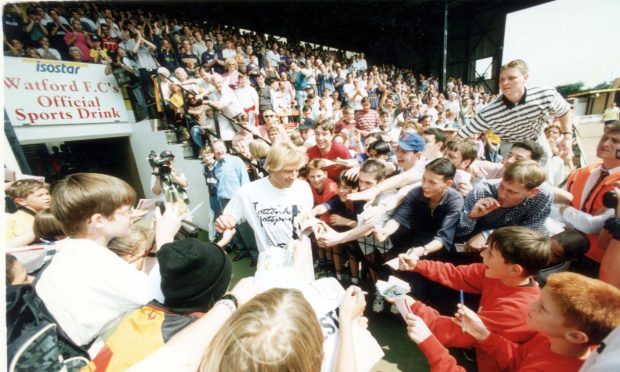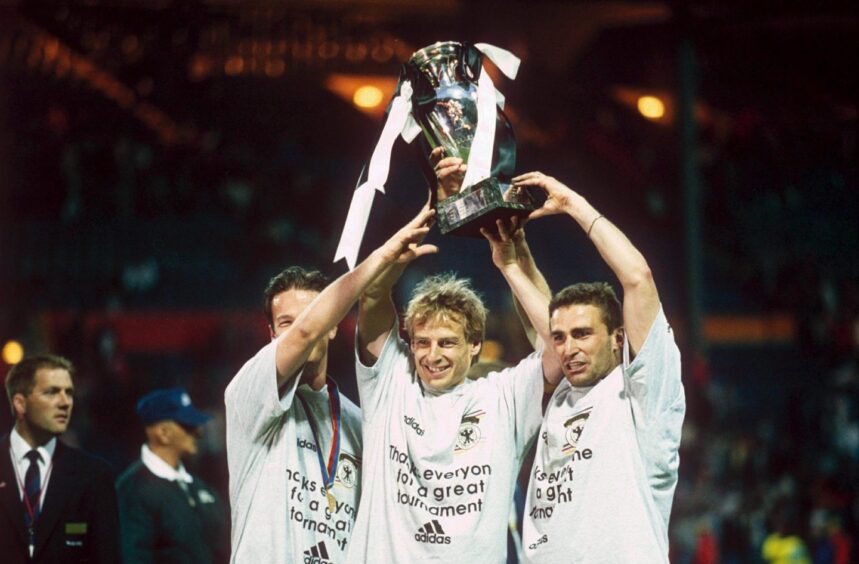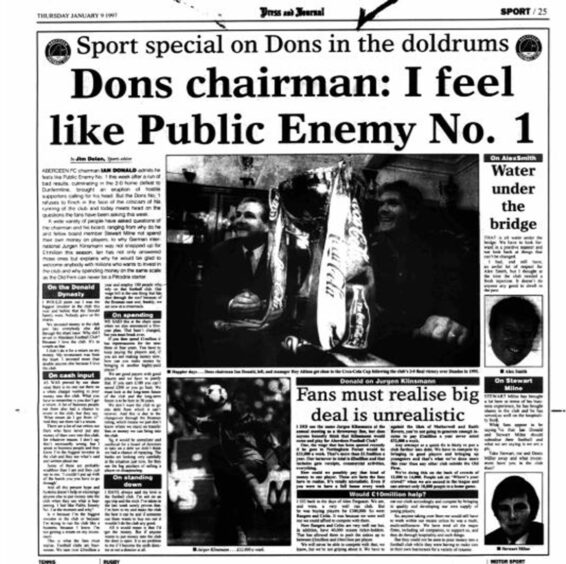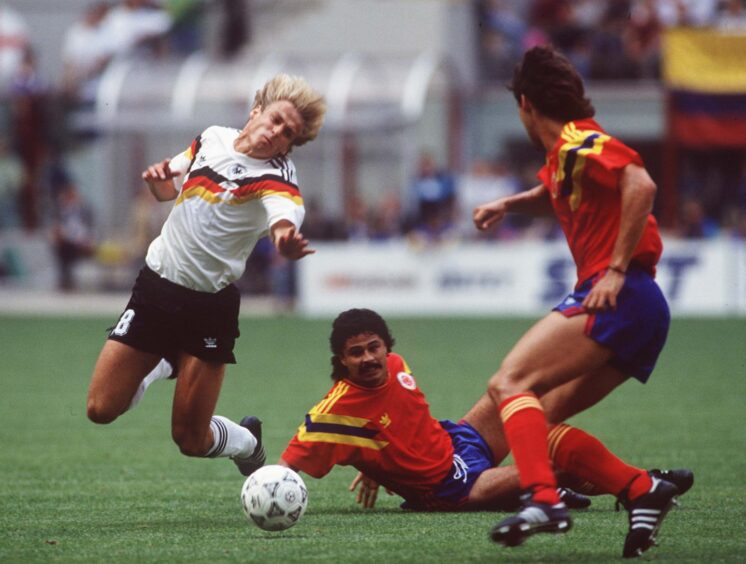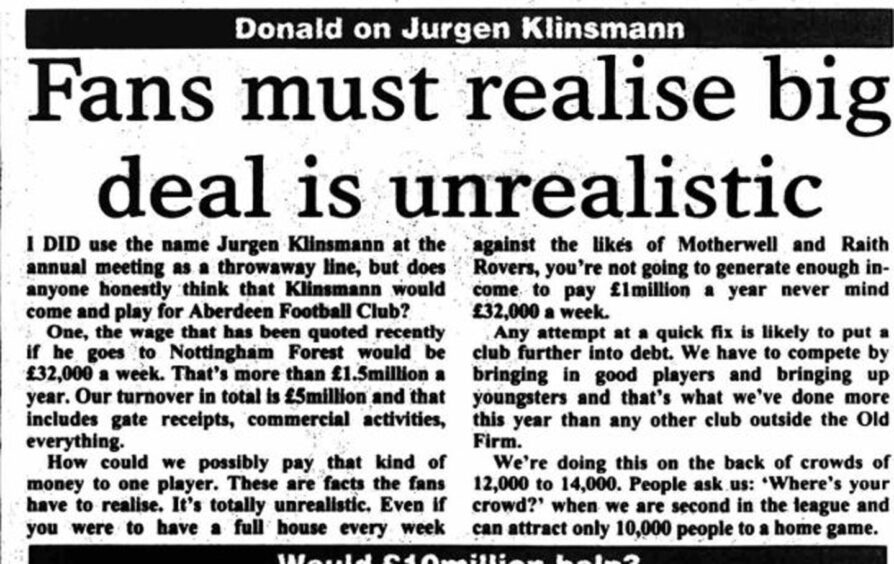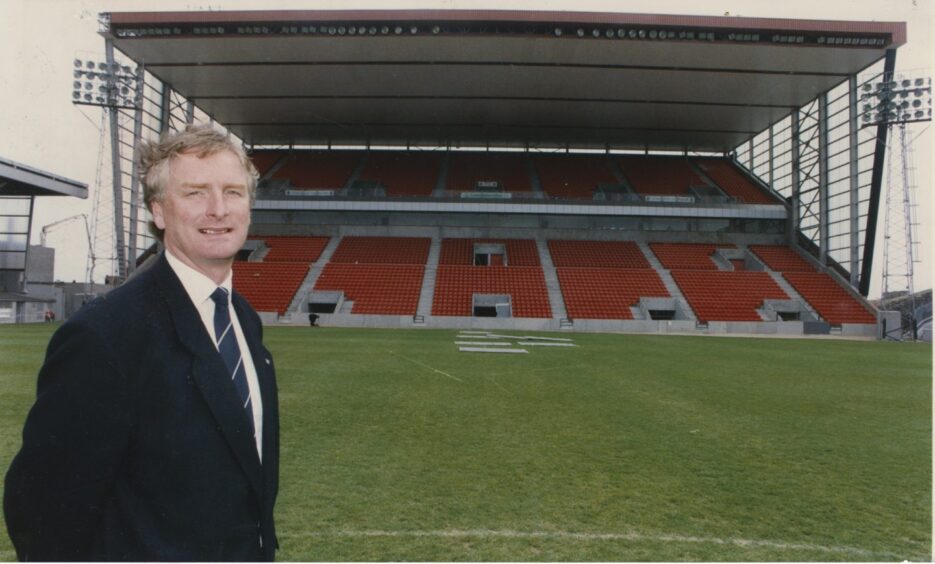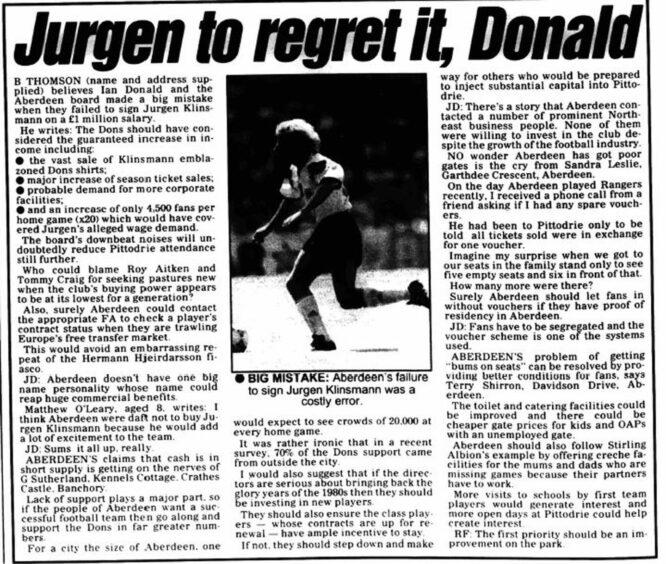During Aberdeen’s annual meeting in December 1996, Dons chairman Ian Donald revealed his club had been offered the chance to sign a footballing superstar.
Donald confirmed that Jurgen Klinsmann’s agent had faxed the Dons, among a number of other clubs, saying the striker was available on a free transfer.
The stumbling block was Klinsmann’s demands of at least £1million per year in wages.
Donald made the revelation to 300 shareholders at the city’s Capitol Theatre during a question and answer session which followed the club’s AGM.
One shareholder urged Donald to speculate to accumulate by buying big-name players, highlighting that stars such as Gheorghe Hagi can become available on free transfers as a result of the 1995 Bosman ruling.
Donald responded: “One big name player does not guarantee success. When Charlie Nicholas came here as a real personality our crowds only improved for the first six home games.”
The Aberdeen chairman went on to speak about the fax he had received from Klinsmann’s agent.
He may have regretted that decision as some Dons fans perceived the lack of interest in a possible deal for Klinsmann – who had helped Germany to victory at Euro 1996 earlier that year – as a lack of ambition.
In the following day’s Evening Express, Dons legend Joe Harper described the admission as a major own goal by chairman Donald.
He said: “It’s ridiculous that the Dons didn’t at least try to take the player over.
“The Aberdeen fans want a personality player and the club threw away the best chance they will ever get to get one of the biggest in the world.
“I’m sure there are major companies in the city who would have been willing to help with the costs in return for having Klinsmann available to meet their guests and customers on match days.
“I mean no disrespect to Paul Bernard but the club paid £1million for him.
“So what was the problem with paying the same sum for one of the top stars in the world game?
“The Dons would have raked in cash from selling Klinsmann shirts and other souvenirs.
“It would have made Aberdeen the talk of Europe.”
An ‘unrealistic’ transfer for the Dons
A month after the AGM and in an exclusive interview with the Press and Journal on January 9, 1997, chairman Ian Donald admitted he felt like “public enemy number one” following a series of bad results.
He also provided more details on why the club opted against a move for German international Klinsmann for £1million a season.
He said: “I did use the name Jurgen Klinsmann at the annual meeting as a throwaway line but does anyone honestly think that Klinsmann would come and play for Aberdeen Football Club?
“One, the wage that was quoted recently if he goes to Nottingham Forest would be £32,000 a week.
“That’s more than £1.5million a year.
“Our turnover in total is £5million and that includes gate receipts, commercial activities, everything.
“How could we possibly pay that kind of money to one player? These are the facts the fans have to realise.
“It’s totally unrealistic.
“Even if you were to have a full house every week against the likes of Motherwell and Raith Rovers, you’re not going to generate enough income to pay £1million a year, never mind £32,000 a week.
“Any attempt at a quick fix is likely to put a club into further debt.
“We have to compete by bringing in good players and bringing up youngsters and that’s what we’ve done more than any other club outside the Old Firm.
“We’re doing this on the back of crowds of 12,000 to 14,000. People ask us: ‘Where’s your crowd?’ when we are second in the league and can only attract 10,000 to a home game.”
Klinsmann was at Bayern Munich at the time of the transfer speculation linking him with the Dons.
He moved to Italian side Sampdoria for the 1997-98 season but returned for a second spell at Tottenham on a loan deal halfway through the season with his goals helping save the club from the threat of relegation from tthe English top flight.
